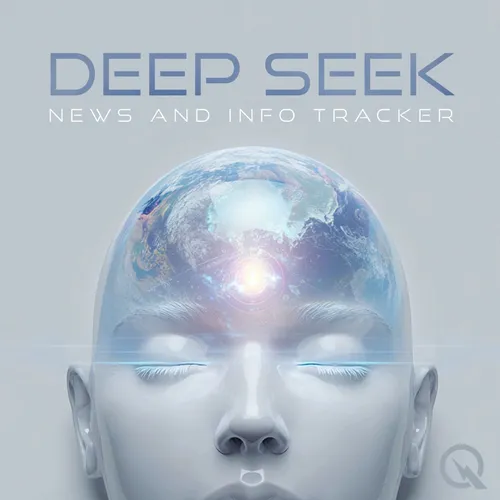DeepSeek AI Revolutionizes Data Analysis Across Healthcare Finance and Environmental Sectors with Advanced Machine Learning
- Author
- QP - Daily
- Published
- Mon 02 Jun 2025
- Episode Link
- https://www.spreaker.com/episode/deepseek-ai-revolutionizes-data-analysis-across-healthcare-finance-and-environmental-sectors-with-advanced-machine-learning--66366167
As of June 2, 2025, DeepSeek has emerged as a significant development in the field of artificial intelligence, drawing attention from technology enthusiasts and professionals alike. Developed by a consortium of leading AI researchers and engineers, DeepSeek is designed to enhance data retrieval and analysis capabilities across various sectors, including healthcare, finance, and environmental science. By utilizing cutting-edge machine learning algorithms, DeepSeek has the ability to process and interpret large datasets with unprecedented speed and accuracy.
One of the most notable features of DeepSeek is its adaptive learning capability. Unlike traditional AI systems that require constant updates and manual input from humans, DeepSeek learns continuously from new data inputs, refining its processes in real time. This ability to adapt autonomously allows it to stay relevant and efficient in dynamic environments where data is rapidly evolving.
In the healthcare sector, DeepSeek is making strides by improving diagnostic accuracy and patient care. Hospitals are leveraging its powerful algorithms to sift through massive amounts of medical records and research data to identify patterns that could lead to more effective treatments and early disease detection. This capability is particularly beneficial in oncology, where early and accurate diagnosis can significantly impact patient outcomes.
The financial industry is also experiencing transformation through DeepSeek's applications. Financial institutions are utilizing this AI to analyze market trends, forecast economic shifts, and assist in investment decision-making. Its capacity to process real-time financial data and integrate it with historical patterns provides a robust tool for risk assessment and portfolio management.
Environmental scientists and climate researchers are tapping into DeepSeek's prowess to tackle some of the most pressing ecological challenges. By processing climate data, satellite images, and ecological models, DeepSeek aids in predicting weather patterns, tracking wildlife habitats, and optimizing resource allocation for conservation efforts. These capabilities are crucial in responding to natural disasters and planning sustainable development projects.
Despite its impressive capabilities, the implementation of DeepSeek is not without challenges. Ethical concerns regarding data privacy and AI autonomy continue to be at the forefront of discussions among stakeholders. Developers are actively engaging with ethicists and policymakers to ensure responsible deployment and establish guidelines that protect individual privacy while maximizing AI's benefits.
Moreover, there are concerns about the job market impact, as DeepSeek's automation capabilities could potentially replace certain tasks currently performed by humans. However, proponents argue that this AI will create new opportunities by allowing humans to focus on more complex and creative problem-solving tasks.
In conclusion, DeepSeek is positioning itself as a transformative force in the AI landscape by enhancing data-driven decision-making across various industries. As it continues to evolve, its impact on society is likely to be profound, driving efficiencies and opening new avenues for innovation. Ongoing discussions around ethical considerations and workforce adaptation will be crucial in navigating the balance between technological advancement and societal needs.
